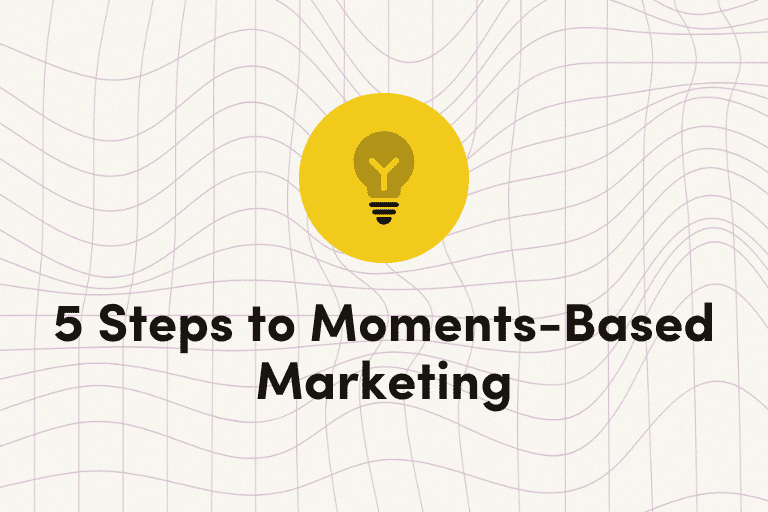Technology continues to grow more complex and few concepts have attracted more buzzworthy attention than Artificial Intelligence (AI). While primarily still rooted in early research and development, many are looking towards how AI can be leveraged to improve the way we live, work, and access services. It is also one of the fastest growing emerging technology investment areas, with public federal spending on AI approaching $1B after seeing a 50% increase in 2020.
From enhanced cybersecurity to hyper-automation, AI has moved from something of science fiction into reality—permeating its way into every nook and cranny of our lives. And, with a topic that is neither straightforward nor narrow in its scope, many marketers are left asking: How is AI impacting our work? And how is it affecting the ways brands interact with their customers?
Marketing AI is Anything But Artificial
Marketing AI comes in many forms, but usually it’s about increasing efficiency and automation. According to Accenture, business productivity can be improved by as much as 40% with AI. The ingestion of data keeps increasing every year and since marketers are only human, they can’t analyze the data, parse out insights, and build campaigns all within a day. That’s where AI comes in. AI takes some of the stress and guesswork out of analyzing data to help tell a story.
Today, a majority of firms use AI to drill into specific tasks, such as digital ad placement or customer service. There is, however, one crutch in which all of this innovation leans on, and that is the customer data available to you and your team.
The Role of Predictive Analytics
When we think about data, we often think of it as an intangible collection of information. Predictive analytics (PA) are a subset of advanced analytics that seek to compile this data into something usable—proactively optimizing and building off of it to achieve a certain goal.
At its core, PA is a subset of AI that “analyzes current and historical data to make predictions using various statistical techniques—usually data mining, predictive modeling, and machine learning.” For example, should a customer make a purchase from your brand and later start receiving product recommendations based on the products they’ve purchased in the past, this is the result of PA. Your brand can use this collecting and compiling of historical customer data to craft messaging and create a personalized current and future customer experience.
The benefits to this are numerous—more informed insights into customer behavior and the optimization of resources, to name a couple. Personalization also sees a big boost here. Predictive analytics gives new meaning to how you modify your brand’s content to fit your audience’s interests. Interactions can then be dynamically altered in real-time by machine learning and PA to offer customers specific product recommendations or resources that are based on their demonstrated behavior.
There’s massive potential for how these technologies can be leveraged. And as the predictive analysis market continues to grow at a 23.2% rate year over year, it’s safe to assume that new applications will make their way to the ground floor, opening a wealth of possibilities in how brands will continue to engage their audiences moving forward.
What’s New in 2022 and Beyond?
Current marketing shows this is just the beginning of how AI technologies will be applied moving forward. Paired with predictive analytics, AI will continue to give brands the ability to act on customer intent, intelligently providing insights into audience behavior. Marketers of the future will be able to connect with their audiences in new ways, earning their loyalties and building out unique communities. Here are just a few ways Ai is going to impact the next stage of marketing.
Image Personalization
While content personalization has been a go-to marketing strategy for years, the concept of image personalization remains an untapped application of AI. With this, marketers could connect and serve their audience content with custom images based on user preferences. These algorithms would be rendered based on consumer’s preferred styles of color, objects, and text, driving traffic and engagement by appealing to users on an individual level.
Customer Relationship Management
These technologies are also changing the way in which we use our current marketing tools. CRMs are an important piece to any marketing tech stack, and AI can identify patterns of customer behavior that can help mitigate churn and nurture leads in ways that both improve loyalty and increase conversion. By segmenting audiences based on known interests and demographic information, marketers can better equip themselves to serve individuals with targeted messaging. This even extends to send-time optimization that can help you break through the constant noise by reaching customers when they have shown they are most likely to engage.
Remove Biases From Customer Data and Insights
The big winner here, however, will be the potential for AI to leverage customer data for insights that won’t be prone to predisposed biases of marketers. It’s been well researched how people’s decision making is often flawed, molded subconsciously by our environment. As a potential business solution, AI has been considered as a way to reduce our subjective interpretation of data, as machine learning enables AI to only look at what variables can improve their predictive accuracy.
AI is Not The End-All, Be-All
While a welcome addition for teams looking to adjust to their customers’ wishes in real time, companies will still need to adopt a certain level of caution when leveraging them. Just as AI can aid us in limiting our own biases, these algorithms are capable of these same pitfalls. Referred to as algorithmic discrimination, the rule-based systems on which AI operates can make unintended mistakes, disregarding entire segments of your audience and effectively hurting your bottom line. Marketers will need to be wary of these potential missteps and be consistent in their adjustments when assessing their reliability.
Overall though, AI technologies are set to change the landscape of the industry, and are projected to create more jobs than take them away. And, while marketers will inevitably have to put less effort into the more technical aspects of their work, this will provide an opportunity to align themselves with more creative-centric and strategy-driven tasks. A computer might be able to segment your audience more efficiently, but at the end of the day, only humans can bring genuine personalization to outreach and forge the authentic experiences that the market has come to expect.
To learn how your marketing team can combine a human touch with AI and PA capabilities, schedule an Iterable demo today.
































